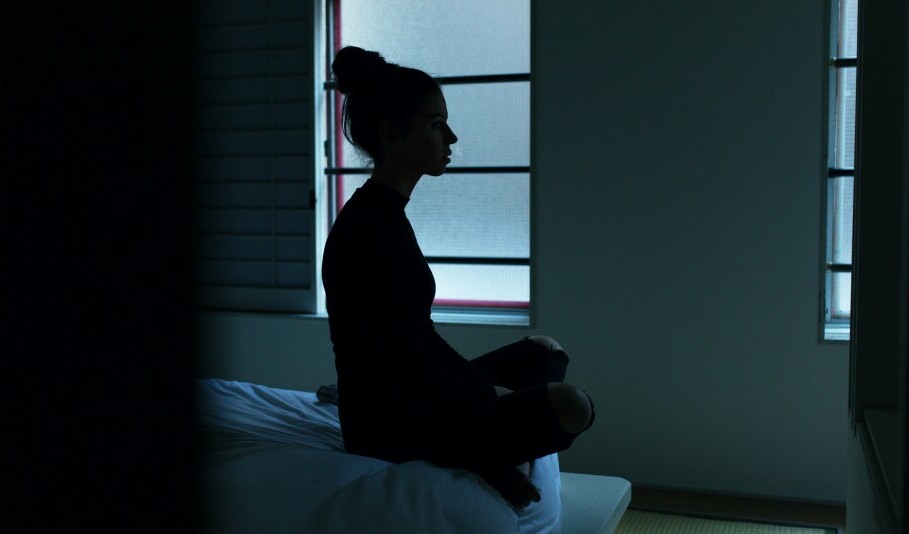Understanding Insomnia and Its Natural Remedies
Insomnia is a common sleep disorder that affects your ability to fall asleep, stay asleep or to wake up too early. This post will be an exploration of the 5 best natural remedies for insomnia.
Brief explanation of insomnia and its impact on daily life
Insomnia can make you feel tired, irritable, depressed or anxious during the day. It can also impair your concentration, memory and performance at work or school. Insomnia can have many causes, such as stress, anxiety, trauma, medical conditions, medications or poor sleep habits.
Insomnia can also increase your risk of developing other health problems, such as obesity, high blood pressure, diabetes and heart disease. Insomnia can be acute (short-term) or chronic (long-term), and it can be primary (not related to another condition) or secondary (caused by another condition). If you have insomnia, you should talk to your doctor or a sleep specialist to find out the cause and the best treatment for you.

Overview of conventional treatment methods versus natural remedies
Conventional treatment methods and natural remedies offer distinct approaches to managing health conditions. Conventional treatments, often prescribed by healthcare professionals, involve medications, surgeries and medical devices. These methods aim to alleviate symptoms, cure diseases or prevent future health issues.
Natural remedies, on the other hand, encompass a wide range of traditional, herbal and alternative therapies that utilize natural substances, such as plants, minerals and dietary modifications.
Natural remedies focus on promoting overall well-being, enhancing the body’s natural healing abilities and addressing the root causes of health concerns. While conventional treatments may provide rapid symptom relief or address acute conditions, natural remedies often take a holistic approach, aiming to restore balance and harmony within the body.
The choice between conventional treatments and natural remedies depends on various factors, including the severity of the condition, personal preferences and cultural beliefs.

Introduction to the holistic approach to treating insomnia
While conventional treatments often focus on pharmacological interventions, a holistic approach addresses the multifaceted nature of insomnia, encompassing lifestyle modifications, behavioral techniques and natural remedies. This comprehensive strategy aims to address the root causes of sleep disturbances, promoting long-term improvements in sleep quality.
By incorporating relaxation techniques, such as meditation or deep breathing, individuals can effectively manage stress and anxiety, common contributors to insomnia. Additionally, establishing a regular sleep schedule, maintaining a conducive sleep environment and engaging in regular physical activity can positively influence sleep patterns.
Furthermore, dietary adjustments, including limiting caffeine and alcohol consumption, can optimize the body’s natural sleep-wake cycle. The holistic approach recognizes the interconnectedness of physical, mental and emotional factors in sleep health, striving to restore balance and harmony for lasting sleep improvement.

Top 5 Natural Remedies for a Peaceful Slumber
The efficacy of herbal supplements like valerian root and chamomile
While conventional sleep medications may be effective, they often come with side effects and the potential for dependency. As a result, many individuals turn to herbal supplements as a natural alternative for improving sleep quality. Two commonly used herbal supplements for insomnia are valerian root and chamomile.
Valerian root has been traditionally used for centuries to promote relaxation and sleep. Studies have shown that valerian root may help reduce sleep latency, the time it takes to fall asleep and improve overall sleep quality.
Chamomile, another popular herbal sleep aid, is known for its calming and soothing properties. Research suggests that chamomile may help alleviate anxiety and promote relaxation, which can contribute to improved sleep.
However, it’s important to note that the efficacy of herbal supplements can vary among individuals, and it’s always advisable to consult with a healthcare professional before using them, especially if you are taking other medications or have underlying health conditions.
Lifestyle changes: the role of exercise and relaxation techniques
While medication is often prescribed to manage insomnia, lifestyle changes, particularly exercise and relaxation techniques, can be effective in improving sleep quality and reducing insomnia symptoms.
Regular physical activity has been shown to enhance sleep duration and quality as well as reduce sleep latency, the time it takes to fall asleep. Exercise is thought to promote sleep by reducing stress, improving mood and increasing the production of endorphins, which have calming effects.
Relaxation techniques, such as deep breathing, meditation and yoga can also be beneficial in managing insomnia. These techniques help to calm the mind, reduce muscle tension and promote a sense of relaxation, all of which can contribute to improved sleep.
By incorporating exercise and relaxation techniques into their daily routine, individuals with insomnia may find relief from their symptoms and experience improved sleep quality.

The benefits of mindfulness and meditation practices
In recent years, mindfulness and meditation practices have gained increasing attention as potential non-pharmacological interventions for insomnia. These practices aim to train the mind to focus on the present moment, cultivate awareness and reduce stress and anxiety, which are common underlying factors contributing to sleep disturbances.
Mindfulness-based interventions, such as mindfulness-based stress reduction (MBSR) and mindfulness-based cognitive therapy (MBCT), have been shown to improve sleep quality, reduce sleep latency (the time it takes to fall asleep) and increase total sleep time in individuals with insomnia.
These effects are believed to be mediated through the cultivation of a more relaxed and non-judgmental attitude towards sleep as well as the reduction of cognitive arousal and rumination, which often interfere with sleep initiation and maintenance. Meditation practices, such as transcendental meditation (TM) and yoga nidra, have also demonstrated promise in alleviating insomnia symptoms.
TM, a technique involving the use of a mantra to focus the mind and achieve a state of deep relaxation has been found to improve sleep quality, reduce sleep latency and increase sleep efficiency (the percentage of time spent asleep during the total time in bed) in individuals with insomnia.
Yoga nidra, a guided meditation technique that involves systematic relaxation of the body and mind, has also been shown to improve sleep quality, reduce sleep latency and increase total sleep time in individuals with insomnia.

Sleep hygiene and environmental adjustments for better sleep
Insomnia, a prevalent sleep disorder, often stems from poor sleep habits and an unfavorable sleep environment. To combat insomnia, implementing effective sleep hygiene practices and making suitable environmental adjustments can significantly improve sleep quality and duration.
Maintaining a regular sleep schedule, even on weekends, helps regulate the body’s natural sleep-wake cycle. Establishing a relaxing bedtime routine, such as taking a warm bath, reading a book or listening to calming music, can promote relaxation and signal the body to prepare for sleep.
Creating a conducive sleep environment involves optimizing factors like temperature, light, and noise. Ensuring the bedroom is cool, dark, and quiet can facilitate sleep onset and maintenance. Using blackout curtains, earplugs, or white noise machines can help minimize distractions and create a more serene sleeping space.
Avoiding caffeine and alcohol before bedtime, engaging in regular physical activity and seeking professional help for underlying medical conditions that may contribute to insomnia can further enhance sleep quality and combat insomnia effectively.

Dietary habits: Foods and beverages that promote sleep
While there are various factors contributing to insomnia, dietary habits play a crucial role in promoting restful sleep. Certain foods and beverages have been found to have sleep-enhancing properties, while others can interfere with sleep quality. Incorporating sleep-friendly foods into your diet and avoiding disruptive substances can help improve sleep patterns and alleviate insomnia symptoms.
Some beneficial foods include:
- Tart cherries: Rich in melatonin, a hormone that regulates the body’s sleep-wake cycle.
- – Fatty fish: Contains omega-3 fatty acids, which have been linked to improved sleep quality.
- – Nuts and seeds: Good sources of magnesium, a mineral that supports relaxation and sleep.
- – Whole grains: Complex carbohydrates can help stabilize blood sugar levels, promoting restful sleep.
- – Herbal teas: Chamomile and lavender teas have calming effects and may aid in sleep.
- Conversely, certain foods and beverages can disrupt sleep and should be consumed in moderation or avoided before bedtime. These include:
- – Caffeine: Found in coffee, tea, and energy drinks, caffeine is a stimulant that can interfere with sleep.
- – Alcohol: While alcohol may initially induce sleepiness, it can disrupt sleep later in the night.
- – Sugary foods: High-sugar foods can cause energy spikes and crashes, affecting sleep patterns.
- – Spicy foods: Can cause heartburn and indigestion, leading to sleep disturbances.
- – Large meals: Eating a heavy meal close to bedtime can put stress on the digestive system and make it harder to fall asleep. By making mindful choices about your dietary habits, you can create a sleep-conducive environment and improve the quality of your sleep.

Integrating Natural Remedies into Your Nightly Routine
Personalizing your approach to natural remedies for insomnia
While prescription medications are often used to treat insomnia, natural remedies can be a gentler and equally effective alternative. The key to success with natural remedies is personalization. What works for one person may not work for another, so it’s essential to find what works best for you.
Start by identifying the underlying cause of your insomnia. Is it stress, anxiety, poor sleep habits or an underlying medical condition? Once you know the cause, you can start exploring natural remedies that address that specific issue.
For example, if stress is the culprit, relaxation techniques like yoga, meditation or deep breathing exercises may be helpful. If poor sleep habits are the problem, establishing a regular sleep schedule, creating a relaxing bedtime routine and avoiding caffeine and alcohol before bed can make a big difference.
Herbal remedies like chamomile, valerian root, and lavender have also been shown to promote sleep. However, it’s essential to talk to your doctor before taking any herbal supplements, as they can interact with certain medications.
With a personalized approach and a little patience, you can find natural remedies that help you overcome insomnia and get the restful sleep you deserve.

Where to find reliable resources and how to measure improvement
Seeking reliable resources and tracking improvement are crucial steps in managing insomnia. Credible sources of information include reputable medical websites, such as the National Sleep Foundation or the Mayo Clinic, as well as professional organizations like the American Academy of Sleep Medicine.
These resources provide evidence-based information on insomnia, its causes and effective treatment options. To measure improvement, individuals can keep a sleep diary to record sleep patterns, duration and quality.
Subjective assessments of daytime functioning, such as energy levels, mood and cognitive performance, can serve as indicators of progress. Regularly reviewing these records allows individuals to monitor their response to treatment and make necessary adjustments in consultation with their healthcare provider.
By utilizing reliable resources and implementing effective measurement strategies, individuals can gain a better understanding of their insomnia and work towards achieving restful and restorative sleep.

Cautions and considerations when using natural remedies
While natural remedies for insomnia may appear innocuous, it is crucial to approach their use with caution and consider several factors.
Firstly, the effectiveness of these remedies can vary significantly among individuals and what works for one person may not be effective for another. Secondly, some natural remedies may interact with certain medications, potentially leading to adverse effects or reduced efficacy of the medication.
Additionally, the quality and purity of natural remedies can vary widely and it is essential to choose reputable brands or sources to ensure the product’s safety and efficacy. Furthermore, it is important to be mindful of potential side effects, even with natural remedies, as some may cause drowsiness, headaches or other undesirable reactions.
Lastly, it is always advisable to consult a healthcare professional before using natural remedies for insomnia, especially if you have an underlying medical condition or are taking prescription medications.

When to seek professional medical advice for insomnia
While occasional insomnia is not usually a cause for concern, chronic insomnia can have a significant impact on your overall health and well-being. If you have been experiencing insomnia for more than two weeks, it is important to seek professional medical advice. A doctor can help you determine the underlying cause of your insomnia and recommend the best course of treatment.
In some cases, insomnia may be a symptom of an underlying medical condition, such as depression, anxiety or thyroid problems. A doctor can also rule out other potential causes of insomnia, such as medication side effects or sleep apnea.
Treatment for insomnia may include lifestyle changes, such as improving sleep hygiene and avoiding caffeine and alcohol before bed. In some cases, medication may be necessary to help you fall or stay asleep. If you are struggling with insomnia, it is important to seek professional medical advice to get the help you need to improve your sleep and overall health.

I hope you have enjoyed, and that you will benefit from, this content. If you have questions or comments I’d love to hear from you in the ‘Leave a Reply’ section below.

Grant Rayner
Thank you very much for this guide, Grant.
Lately, I’ve been consistently going to bed after midnight as my sleeping schedule has been all over the place. This not only takes its toll on my health and mood but also my productivity, which in turn makes me feel even worse!
I tried to take active measures to fix my sleeping schedule, for example waking up at 5 AM, going to the gym, and trying to go to sleep at around 8-9 PM. However, I had a long sleep latency so I struggled to stick to this schedule.
The reason, I believe, is that I’ve been working from home for quite a while now so I haven’t been getting enough sun exposure. It is said that getting sun exposure early in the morning sets your “body clock” properly, so that is something I’m unfortunately missing out on.
On the bright side, I do exercise and go out for walks.
In your opinion, will these natural remedies help me sleep early before midnight given my current lifestyle? I’d love to know your input on this.
Hello Yusuf and thank you for your comments and question. I have been a huge fan of natural remedies for quite some time and, hence, I cover natural remedies in a lot of areas. A holistic approach is often necessary but, like most things, knowing is one thing but doing is another. So to answer your question directly, I believe that, if you are serious about getting into a pattern, it’s going to take some effort on your part. I do believe that, if you do the work, the natural approach has a very high probability of success for you. Hope that helps!
Grant